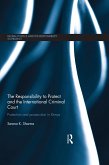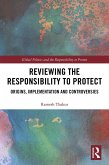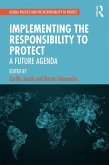From Kosovo to Libya, humanitarian intervention is seldom out of the news. While the 'Responsibility to Protect' (R2P) has often been at the centre of these debates, its effectiveness as a means of preventing and resolving mass atrocities is disputed.
The book provides a systematic overview of the theory and practice of R2P, and examines how the doctrine has been interpreted and implemented since it was first conceived. Aidan Hehir argues that, while it has undeniably raised international consciousness regarding humanitarian intervention, R2P has not significantly improved the international response to large-scale intra-state crises.
Hehir advances an alternative strategy involving a strengthening of international law - based around obligations rather than discretionary rights - and major structural reform to the United Nations. Broad-ranging and insightful, this innovative text provides a clear grasp of the key issues and debates surrounding humanitarian intervention and advances a major new critique of R2P.
The book provides a systematic overview of the theory and practice of R2P, and examines how the doctrine has been interpreted and implemented since it was first conceived. Aidan Hehir argues that, while it has undeniably raised international consciousness regarding humanitarian intervention, R2P has not significantly improved the international response to large-scale intra-state crises.
Hehir advances an alternative strategy involving a strengthening of international law - based around obligations rather than discretionary rights - and major structural reform to the United Nations. Broad-ranging and insightful, this innovative text provides a clear grasp of the key issues and debates surrounding humanitarian intervention and advances a major new critique of R2P.









